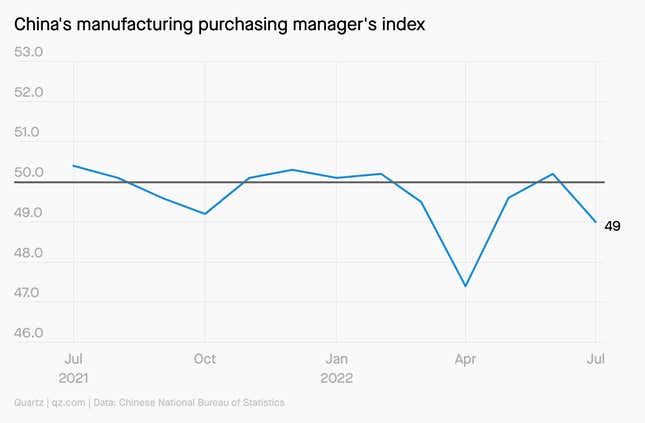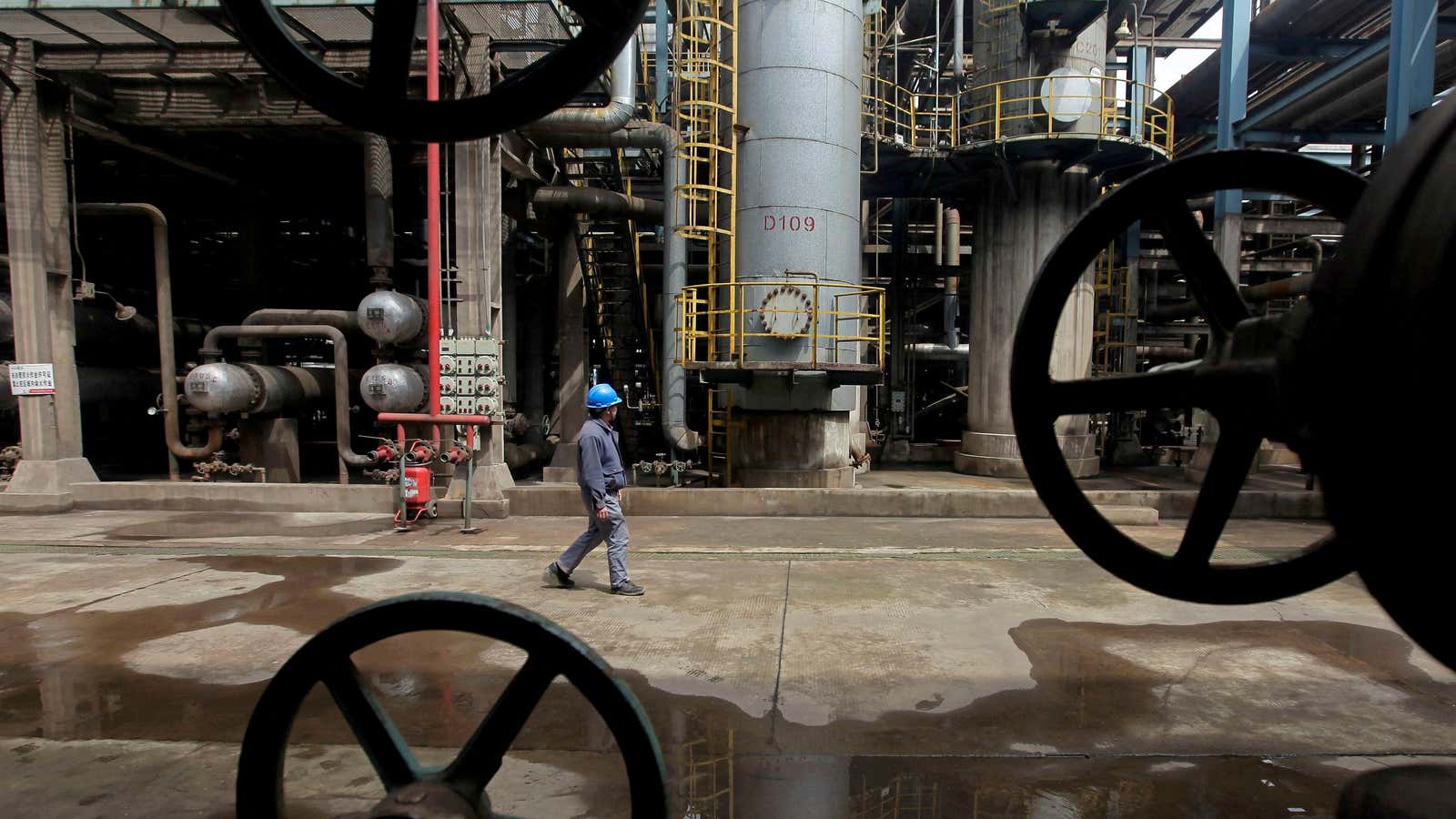China’s factory activity dropped unexpectedly in July, according to new data—a sign that any economic rebound from the country’s disruptive covid lockdowns and its tumultuous real estate sector remains tenuous at best.
The official manufacturing purchasing manager’s index slipped to 49.0 in July from 50.2 in June, far below what analysts had predicted in a Reuters poll. The 50-point mark separates growth from contraction on a monthly basis.
Besides the drop in factory activity, muted consumer spending and an ongoing property crisis are also weighing on sentiment. Overall, China’s poor economic outlook is adding to broader concerns about a global slowdown. That’s especially the case given that China is a key contributor to global growth.

Oil buyers spot a silver lining to China’s slowing growth
But the gloom is also helping to drag down oil prices. Futures for Brent crude and West Texas Intermediate (WTI) crude were down 0.8% and 1.2% respectively just after 6am GMT on Aug. 1, according to Reuters. A barrel of Brent is hovering around $103 while WTI slipped below $98 per barrel. An even deeper downturn in China, the world’s largest crude importer, could bring oil prices further down still.
China’s manufacturing contraction in July was driven mainly by energy-intensive industries like petrol, coking coal, and ferrous metals, according to (link in Chinese) the country’s National Bureau of Statistics.
China Beige Book, an economic data tracking firm, says that the contraction in factory activity should not come as a surprise.
“The illusion: there was NO meaningful June recovery, even [though] everyone assumed coming out of big lockdowns there had to be,” it said in a tweet. While firms are “freed” from the sweeping lockdowns imposed in the spring, they “don’t want to invest, borrow, or hire,” given continuing uncertainties over China’s zero-covid policies.
Meanwhile, Beijing has all but dropped any illusions that it can hit its growth target of 5.5% this year. Last week’s meeting of the Politburo, a top decision-making body of the Communist party, made no mention of the growth target. Nor were there indications of more aggressive fiscal and monetary stimulus, or any recalibration of zero-covid restrictions.
For now, it seems any big economic rebound in China is unlikely, and that the best one can hope for is a slow, limping recovery. That, at least, will take some pressure off global energy and commodities prices.
